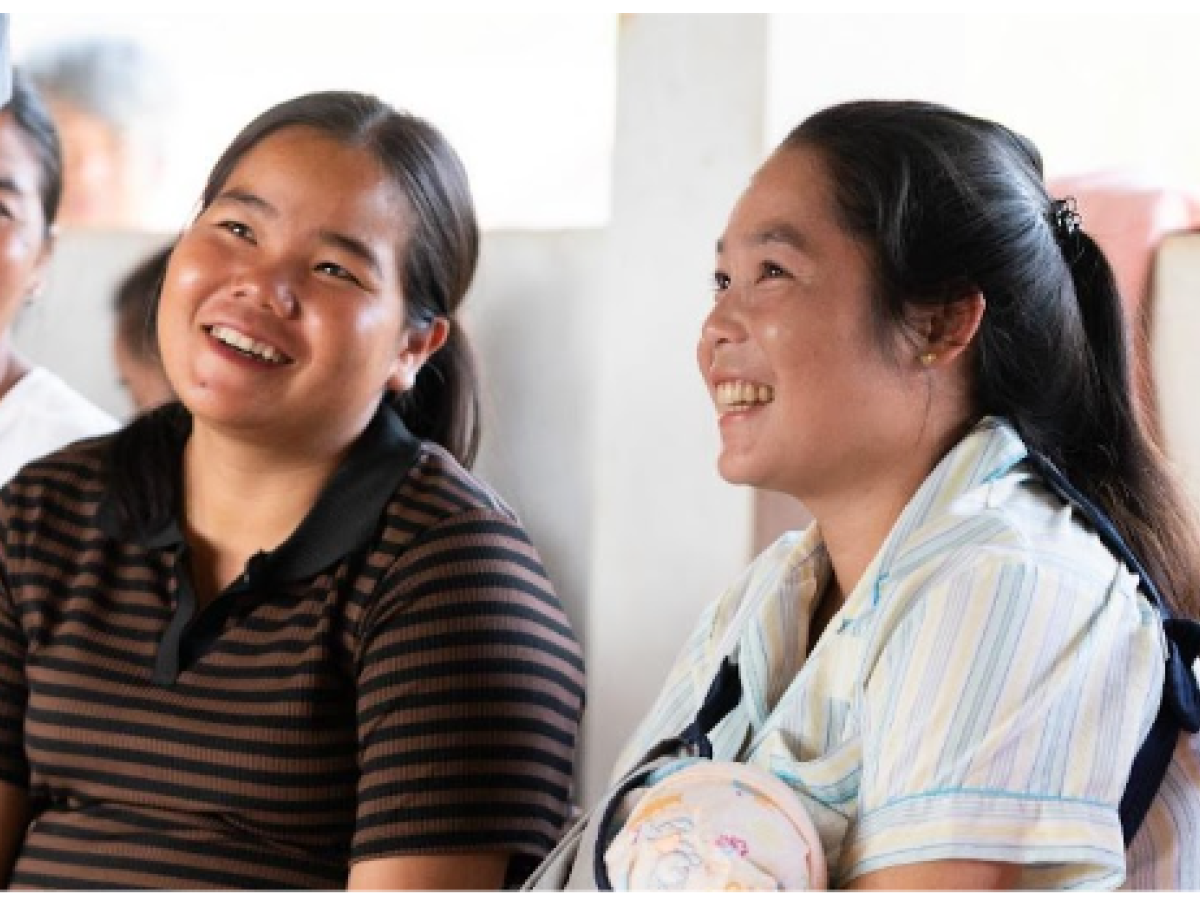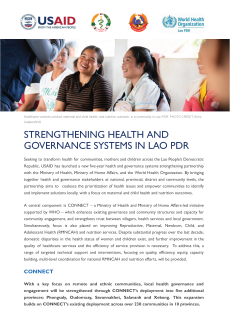Seeking to transform health for communities, mothers and children across the Lao People’s Democratic Republic, USAID has launched a new five-year health and governance systems strengthening partnership with the Ministry of Health, Ministry of Home Affairs, and the World Health Organization. By bringing together health and governance stakeholders at national, provincial, district and community levels, the partnership aims to coalesce the prioritization of health issues and empower communities to identify and implement solutions locally, with a focus on maternal and child health and nutrition outcomes.
A central component is CONNECT – a Ministry of Health and Ministry of Home Affairs-led initiative supported by WHO – which enhances existing governance and community structures and capacity for community engagement, and strengthens trust between villagers, health services and local government. Simultaneously, focus is also placed on improving Reproductive, Maternal, Newborn, Child, and Adolescent Health (RMNCAH) and nutrition services. Despite substantial progress over the last decade, domestic disparities in the health status of women and children exist, and further improvement in the quality of healthcare services and the efficiency of service provision is necessary. To address this, a range of targeted technical support and interventions, focusing on quality, efficiency, equity, capacity building, multi-level coordination for national RMNCAH and nutrition efforts, will be provided.
CONNECT
With a key focus on remote and ethnic communities, local health governance and engagement will be strengthened through CONNECT’s deployment into five additional provinces: Phongsaly, Oudomxay, Savannakhet, Salavanh and Xekong. This expansion builds on CONNECT’s existing deployment across over 230 communities in 10 provinces.
Practically, this will involve the delivery of a three-module series of workshops, with participants from local governance and health structures – including provincial and district officials, Lao Women’s Union and Lao Youth Union representatives, village authorities, community, ethnic and religious leaders, healthcare staff, and others – as well on-going in-person and virtual supportive supervision, and training and support around health service outreach and delivery.
MATERNAL AND CHILD HEALTH SUPPORT
To improve the quality and efficiency of care for mothers and children, essential RMNCAH and nutrition service delivery will be strengthened with a strong focus on primary health care via quality assessment and improvement support, the development and updating of necessary guidelines, comprehensive training for healthcare professionals, and supportive supervision in healthcare facilities across the country. It is anticipated USAID’s support will assist in developing and deploying clinical guidelines and training across more than 200 facilities in alignment with the National Strategy and Action Plan on RMNCAH.
To improve better health and nutrition outcomes, the final review of the RMNCAH Strategy will provide an opportunity to assess the current situation, identify a set of priorities and develop a strategic plan for the coming years to enhance integrated service delivery across RMNCAH, nutrition and immunization programs. This will also provide a critical basis to strengthen high-level multisectoral advocacy and engagement mechanisms, linking with CONNECT and broader primary health care strengthening. Additionally, high-level advocacy will raise awareness of the importance and roles of multi-sectoral collaboration in addressing SDHs for health equity, with a focus on maternal and child health and nutrition.
STRENGTHENING COORDINATION
Coordination for planning, implementation and monitoring at central and sub-national levels is critical. With support from USAID, systematic coordination will be enhanced by strengthening the functions of key coordinating bodies (i.e. RMNCAH Technical Working Group & Health Sector Working Group). WHO’s technical assistance will support the National RMNCAH Committee to develop an evidence-based strategy and action plan for RMNCAH for 2026-2030 and build capacity for effective development partner coordination, including the monitoring of integration progress for nutrition within RMNCAH.
ANTICIPATED OUTCOMES
To achieve its vision, the partnership is aligned with the MoH’s Health Sector Reform Strategy that aims to increase the effectiveness and efficiency of integrated RMNCAH and nutrition services, as well as broader health goals. The program will strengthen health systems and governance outcomes by:
- Improving health equity through strengthening local health governance and community engagement in target provinces via the CONNECT initiative;
- Improving the quality and efficiency of the delivery of essential RMNCAH and nutrition services;
- Improving coordinated planning, implementation and monitoring across the health sector at central and subnational levels and enhancing multi-sectoral approaches for health.
For more information visit www.usaid.gov/laos or contact infolaos@usaid.gov


